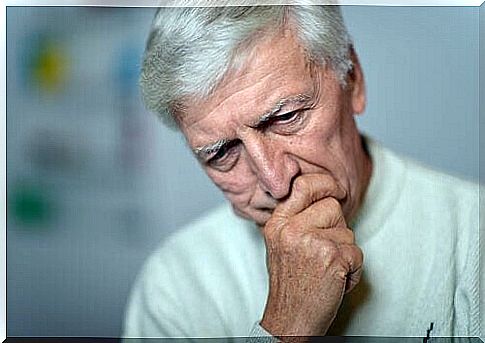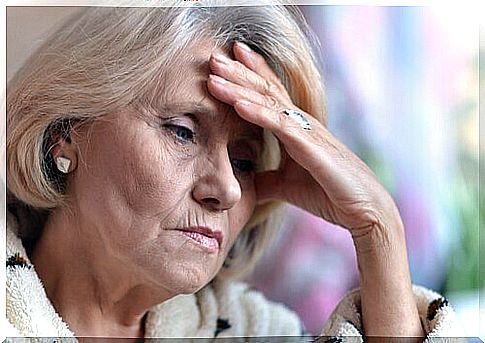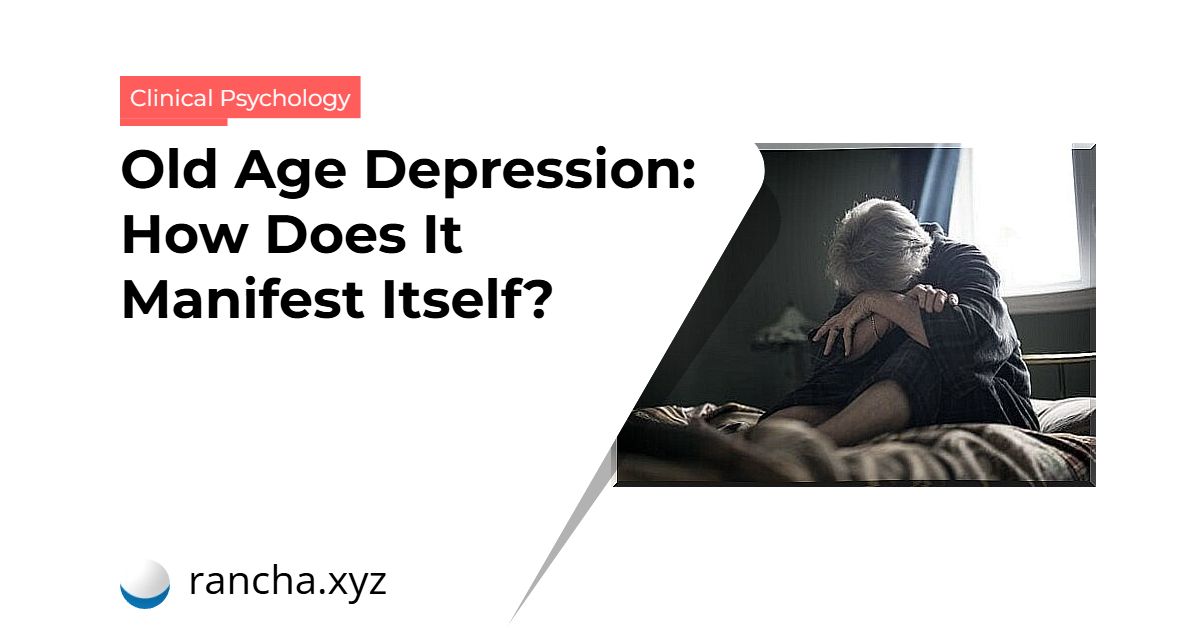Depression is not a homogeneous and unitary diagnostic category. Depending on each person, or more specific variables, such as age group, it can manifest in one way or another. For example, in the case of childhood depression, the mood, rather than sad or downcast, often manifests itself as irritation or annoyance rather than sadness. Also, children often mention more physiological symptoms and sleep problems. And in the case of depression in old age, what happens?
Epidemiological data indicate that depression in the elderly also has a particular course and manifestation. Thus, treating it in a general way tends to lead us to mistakes.
It is common to find elderly people in homes or geriatric institutions who suffer from clinical depression. The manifestation is usually atypical – if we do not consider the age variable – precisely because of the difficulty that many elderly people have to express their symptoms in relation to mood. They tend to do it through somatic complaints.
It is common for them to verbalize difficulties in sleeping, lack of energy, localized or non-specific pain, etc. This is reflected in the fact that professionals relate symptoms more to a physical illness than to a depressive disorder. Often, because of this overlap between physical illness and depression, the latter tends to be masked.

Characteristics of depression in old age
There is a relative consensus in the scientific literature to state that depression in old age largely involves the presence of the following characteristics:
- Longer episodes that are more resistant to pharmacological treatment.
- They don’t verbalize feelings of worthlessness or guilt as much as middle-aged adults do.
- They suffer from alexithymia to a greater extent, that is, they more often have difficulty in expressing their emotions verbally.
- It is common for them to suffer from hallucinations and delusions.
- Existence of negative type symptoms, such as apathy, decreased affection, lack of eye contact or reactivity to the environment.
- Bodily symptoms that mask the psychic: anorexia, phobias, hypochondria, anxiety, etc.
- Increased risk of suicide, especially in men and particularly if they live alone.
- Psychomotor agitation with intense anxiety or, conversely, atypical inhibition.
- Increased irritability.
- Significant presence of sleep disorders, in particular insomnia and hypersomnia.
- Frequent anxious somatizations.
- Less diurnal mood swings.
- Cognitive dysfunction: this characteristic is closely associated with the intensity of other symptoms and usually resolves with an improvement in the mood. The aspect that deteriorates the most in the elderly is executive functions and memory.
The importance of social support
The prevention of depression in older people is essential. Regarding this issue, researchers Lowenthal and Haven carried out work in which the importance of having a confidant was proven for the elderly.
Elderly people who enjoy social support are less likely to die for a long time compared to those who do not receive such support. It has been shown that there is a significant relationship between social support (being married, interpersonal relationships, satisfaction with the environment, etc.) and a reduction in the risk of heart disease.
On the other hand, as is logical, having social support is related to the maintenance of adequate health behaviors, as well as better adherence to medical treatments. Having satisfactory social relationships in old age increases immunocompetence and modulates the stress inherent to this stage of life. In this sense, research began on psychosocial therapies for the elderly.
In relation to psychological health, a critical variable is loneliness. Elderly people who are or feel lonely are much more likely to suffer from depression. Social support is a protective variable both in the face of stress and anxiety.

On the other hand, the breadth of the network of old age friends, with whom one can share interests, playful or leisure activities, together with the fact of sharing these activities with one’s spouse, is related to a better adaptation to retirement.
In conclusion, people who enjoy leisure time with other people or who have a pet or who feel they are not alone are at lower risk of suffering from depression in old age. Their health is better and therefore they use the health system less.
Prevention, in this sense, involves preventing, as far as possible, the elderly from being alone, and developing treatment perspectives capable of increasing well-being and life satisfaction.
 rancha.xyz Be free to choose their own route to self-knowledge, health and balance of body and soul.
rancha.xyz Be free to choose their own route to self-knowledge, health and balance of body and soul.




